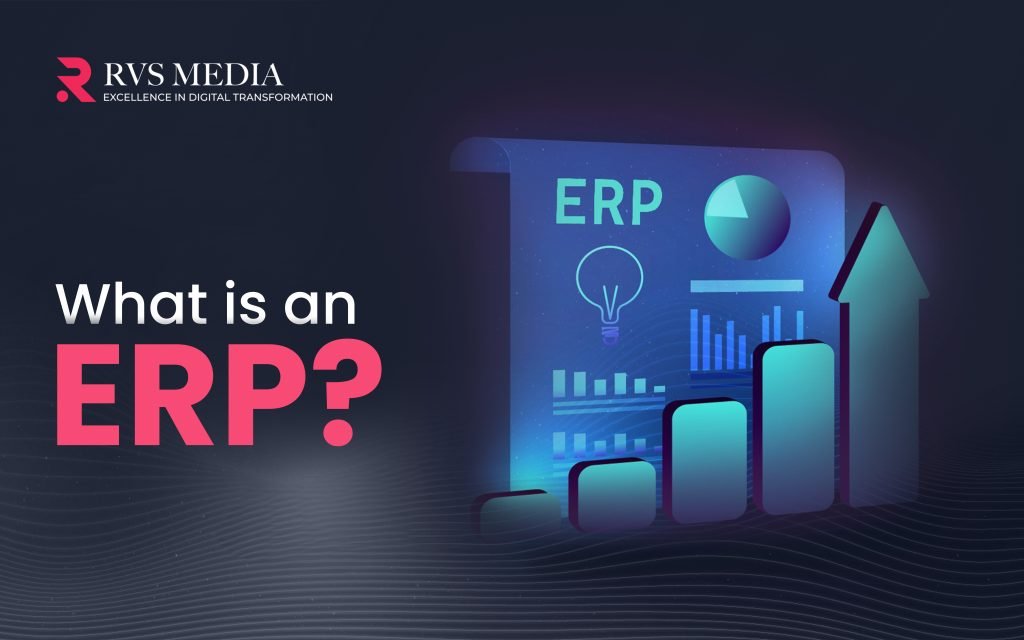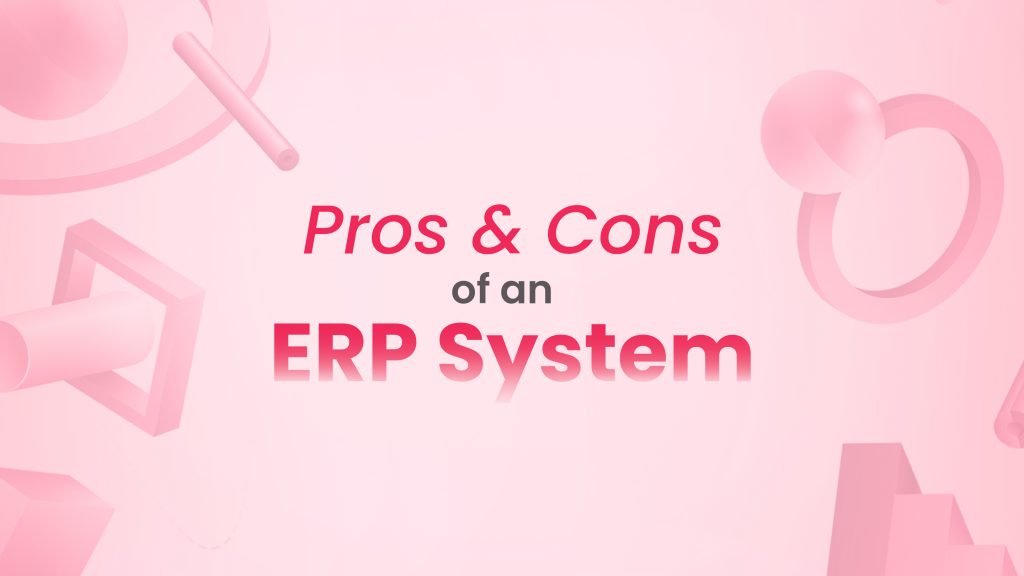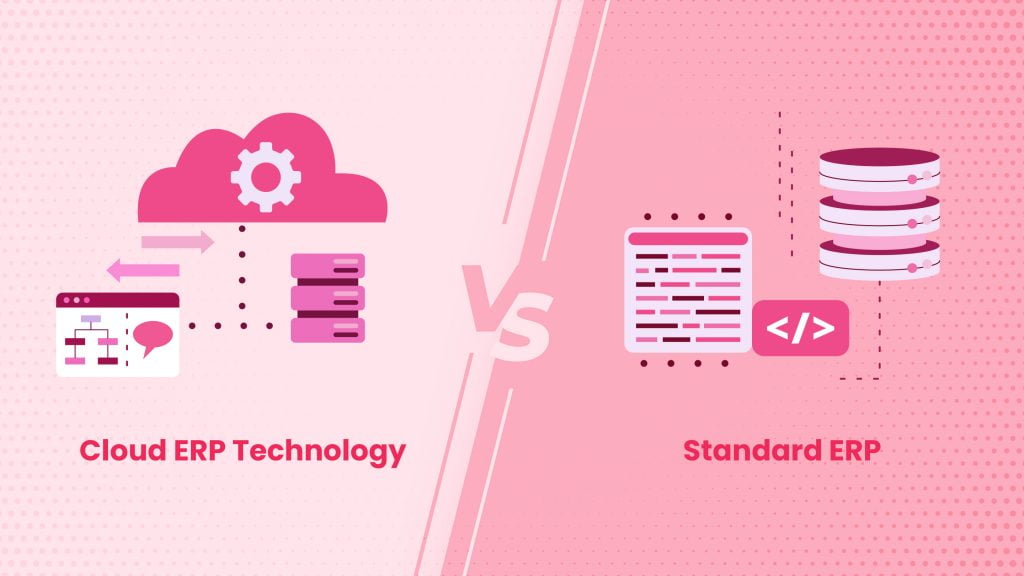How ERP Integration into Your Ecommerce store will help your Business scale quickly?
- Feb 20, 2024
- By Tanisha Sharma

Did you know that ERP software can boost productivity by 20%? It’s like finding a turbo button for your company’s efficiency! Excited to learn more?
Gather ’round, everyone, because we’re about to dive into the world of Enterprise Resource Planning (ERP).
Let’s start with the basics: What is ERP?
What is ERP?

Enterprise Resource Planning (ERP) is a tool that helps companies manage and connect all the important parts of their business in one place. Think of it as a super-organised control center.
With ERP software, you can bring together everything from inventory and sales to marketing, finance, and human resources. This makes it easier for companies to plan and use their resources efficiently. It streamlines operations, cuts down on extra work, and helps everyone stay coordinated and productive.
Do You Want to Uplift Your Business?
Our Enterprise Systems are tailored just for you! Contact us today to learn more!
Understanding Enterprise Resource Planning (ERP)
Think of an Enterprise Resource Planning (ERP) system as the glue that holds together a large organisation’s different computer systems. Without an ERP, each department would run its own system optimised for its specific tasks. With ERP software, every department still has its own system, but now all these systems can be accessed through one unified application with a single interface.
ERP applications make it much easier for different departments to communicate and share information with the rest of the company. They collect data on the activities and status of various divisions and make this information available to other parts of the organisation, where it can be used effectively.
By connecting information from production, finance, distribution, and human resources, ERP systems help a company become more self-aware. They eliminate costly duplicates and fix issues with incompatible technologies. Typically, ERP systems integrate accounts payable, inventory control, order tracking, and customer databases into one streamlined system.
What type of businesses use ERP Software?
Enterprise Resource Planning (ERP) software integrates and streamlines various business processes, making it a vital tool for modern businesses. Here’s a closer look at how ERP systems are used across different areas:
Financial Management
A strong financial management module is essential for any successful business. ERP systems not only handle all your accounting needs but also manage budgeting, recording transactions, handling expenses, overseeing assets, and measuring cash flow.
According to a study by Panorama Consulting Solutions, 95% of businesses saw significant improvements in their financial processes after implementing an ERP system.
Supply Chain and Operations Management
Managing the supply chain effectively is crucial for businesses that rely on materials and products. ERPs streamline supply chain communication, reducing errors and automating tasks like reordering stock.
Aberdeen Group reports that companies using ERP systems saw a 22% improvement in supply chain and operations efficiency.
Project Management
ERPs give you a real-time view of the entire product lifecycle, from quotes to delivery, helping keep projects on track and within budget.
A survey by Software Advice found that 88% of companies using ERP systems experienced better project management and higher completion rates.
Human Resources/Capital Management
ERPs help you manage your workforce more effectively by centralising data, ensuring consistency and accessibility. They also automate tasks like scheduling and payroll, ensuring compliance with employment laws.
A report by Deloitte revealed that businesses using ERP systems reduced their HR administrative costs by 30%.
Business Intelligence
ERP systems come with built-in business intelligence features that track progress, measure performance, and produce in-depth reports, offering comprehensive insights for informed decision-making.
Forrester Research found that companies using ERP systems were 44% more likely to have accurate and timely business insights.
Customer Relationship Management
Many ERPs include customer relationship management features, offering additional functionality without needing a separate CRM platform.
Nucleus Research found that companies using integrated ERP and CRM systems saw a 20% improvement in customer retention.
Automation ERPs automate repetitive tasks like generating schedules, issuing invoices, and performing data entry, which boosts productivity.
Fact: McKinsey & Company reported that businesses implementing ERP automation saw a 25% increase in overall operational efficiency.
Looking to build an ERP that is tailored to your Business’s unique needs?
Contact us today we can help!

Benefits of ERP
Businesses use enterprise resource planning (ERP) systems for many reasons, such as growing their operations, cutting costs, and improving overall efficiency. While the benefits can vary from one company to another, some advantages are universally noteworthy.
- Improves Accuracy and Productivity: ERP systems streamline and automate business processes, eliminating redundancies and improving accuracy and productivity. When departments are connected through an ERP, they can coordinate their work more effectively, leading to quicker and better results. This includes optimising inventory management and supply chain management, which are critical components of operational efficiency.
- Enhances Reporting: Many companies benefit from improved real-time data reporting thanks to a single unified system. Accurate and comprehensive reports help businesses plan, budget, forecast, and communicate the state of operations clearly to the entire organisation and to stakeholders like shareholders. According to a study by Panorama Consulting Solutions, 89% of companies said their ERP implementation helped improve their reporting capabilities, leading to better decision-making and strategic planning.
- Increases Efficiency: ERPs provide quick access to vital information for clients, vendors, and business partners. This boosts customer satisfaction, speeds up response times, and improves accuracy. As businesses operate more efficiently, operational costs often go down. A report by Aberdeen Group found that organisations using ERP systems saw a 22% improvement in operational efficiency, which directly translates to cost savings and a better return on investment.
- Boosts Collaboration: ERP systems enhance collaboration and knowledge sharing among departments. This creates a more synergised workforce, which can improve productivity and employee satisfaction. Employees can see how their work fits into the broader mission and vision of the company. Plus, by automating routine and repetitive tasks, employees can focus on more meaningful and engaging work, improving overall job satisfaction.
- Provides Total Visibility: ERP software gives management complete visibility into operations with real-time data, which aids in better decision-making. According to a survey by Software Advice, 95% of businesses reported major improvements in their processes after implementing an ERP system, highlighting the importance of having a holistic view of operations. This visibility also improves customer services by ensuring timely and accurate information is available across the organisation.
- Enhances Data Security: ERP systems improve data security by providing a single source where all business information is stored. This centralised system is easier to manage, and monitor compared to multiple disparate systems. Access controls and permissions can be strictly enforced, ensuring that only authorised personnel have access to sensitive information. According to a study by Forrester Research, 62% of companies reported improved data security and confidentiality after implementing an ERP system.
- Facilitates Regulatory Compliance: ERP systems assist businesses in maintaining compliance with industry regulations and standards. These systems are designed to keep track of regulatory changes and update the company’s processes accordingly. They also provide audit trials and documentation necessary for compliance reporting. This is especially crucial for industries like finance, healthcare, and manufacturing, where regulatory compliance requirements are stringent. A report by Deloitte indicates that companies using ERP systems are 40% more likely to comply with industry regulations due to the robust tracking and reporting features these systems offer.
- Improves Customer Relationship Management: ERP systems often integrate customer relationship management (CRM) features, enhancing how businesses manage their customer interactions. This leads to better customer service and improved customer satisfaction. By having a single source of customer information, companies can provide more personalised and efficient service, which helps build stronger customer relationships and loyalty.
For businesses looking to enhance their ERP implementation and achieve seamless integration,
Check out this insightful blog on ERP eCommerce integration scale your business to new heights.
Disadvantages of ERP
While implementing an enterprise resource planning (ERP) system can offer numerous benefits, it also comes with several challenges. Here are some common disadvantages companies often encounter:
- Budget Constraints: Investing in a new ERP system requires a significant commitment of time, money, and resources. Upfront costs can be substantial, including consulting and implementation fees. For on-premises ERP systems, there are also substantial personnel costs, as additional IT staff may be needed to manage and maintain the system.
- Change Management: Managing change is one of the most challenging aspects of ERP implementation. It requires considerable time and effort to ensure that all key personnel are properly trained to use the new system. This often involves extensive training programs to help employees understand and adapt to the new workflows and user interfaces.
- Time Commitment: Implementing an on-premises ERP system can be a lengthy process, sometimes taking up to two years. Organisations also need to allocate time for their employees to learn the new system once it’s operational. There is often a steep learning curve associated with mastering new technology, workflows, and user experiences.
- Disruption to Business Processes: During the implementation phase, normal business operations can be disrupted. This can lead to temporary declines in productivity and efficiency as employees adjust to new processes and systems.
- Complexity and Customisation: ERP systems can be highly complex and may require extensive customisation to meet the specific needs of an organisation. This customisation can add to the cost and time required for implementation. Additionally, over-customisation can lead to difficulties in upgrading the system in the future.
- Data Migration Challenges: Transferring existing data to a new Enterprise Software can be a complex and error-prone process. Ensuring data accuracy and integrity during migration is crucial, and any issue can lead to significant problems in the new system.
Cloud ERP Technology over Standard ERP

For years, legacy on-premises ERP solutions were the backbone of many companies. However, these traditional systems often created data silos, required costly maintenance, and demanded customisations that became cumbersome over time. In today’s fast-paced business landscape, such limitations are no longer acceptable.
The Rise of Cloud ERP
Today’s dynamic business environment requires software that can keep up with continuous change. Cloud ERP systems rise to this challenge, offering the flexibility and adaptability that modern organisations need.
Cloud ERP solutions are modular, allowing seamless integration with larger applications. They automate workflows, analyze data, and incorporate AI and machine learning insights, making them indispensable in the digital economy. These systems are scalable, secure, adaptable, and easily accessible.
Constant Innovation
One of the standout features of cloud ERP systems is their ability to provide the latest features, functions, and best practices through regular updates. Subscribers benefit from quarterly updates that include emerging technologies such as AI, digital assistants, machine learning, blockchain, augmented reality, and the Internet of Things (IoT).
Enhanced Efficiency and Insight
With these advanced technologies, organisations can automate processes that previously required manual intervention, such as reconciling financial accounts. This automation not only saves time but also reduces the risk of errors. Furthermore, cloud ERP systems provide users with a comprehensive, real-time view of their organisation’s financial and operational health, enabling better decision-making and strategic planning.
Examples of ERP Systems in the Market
Oracle JD Edwards
Oracle JD Edwards is a widely used ERP system supporting over 7,000 organisations globally. It assists businesses of all sizes, from small and medium-sized enterprises (SMBs) to large enterprises, in managing and integrating their business processes. Key features include financial management, manufacturing, and supply chain management, making it a robust solution for diverse industries.
NetSuite
NetSuite is renowned as the first true cloud ERP platform. It offers extensive customisation, scalability, and integration capabilities, designed to be a single, unified system for managing all key business processes. These processes encompass financial management, customer relationship management (CRM), ecommerce, and more, providing a seamless operational experience for businesses.
Interested in customising your ERP to fit your organisation’s needs perfectly? Connect with RVS.
Our custom-built ERP system, developed by RVS Media, offers a comprehensive solution tailored to meet the unique needs of our organisation. The RVS ERP Platform streamlines various business functions including financial management, supply chain operations, human resources, and customer relationship management. By integrating these processes into a single system, we achieve higher operational efficiency and data consistency.
Conclusion
Legacy ERP systems had their time, but the future is in the cloud. Cloud ERP solutions not only meet the demands of today’s businesses but also prepare them for tomorrow’s challenges. By adopting a cloud ERP system, organisations can ensure they stay competitive, innovative, and efficient in an ever-changing business world.
Ready to transform your business with advanced cloud-based ERP systems? At RVS MEDIA, we specialise in ERP development and design, offering tailored solutions that meet your unique needs. Contact us today to learn more about how we can help you leverage the power of cloud ERP for your business success.
 Shopify
Shopify




















